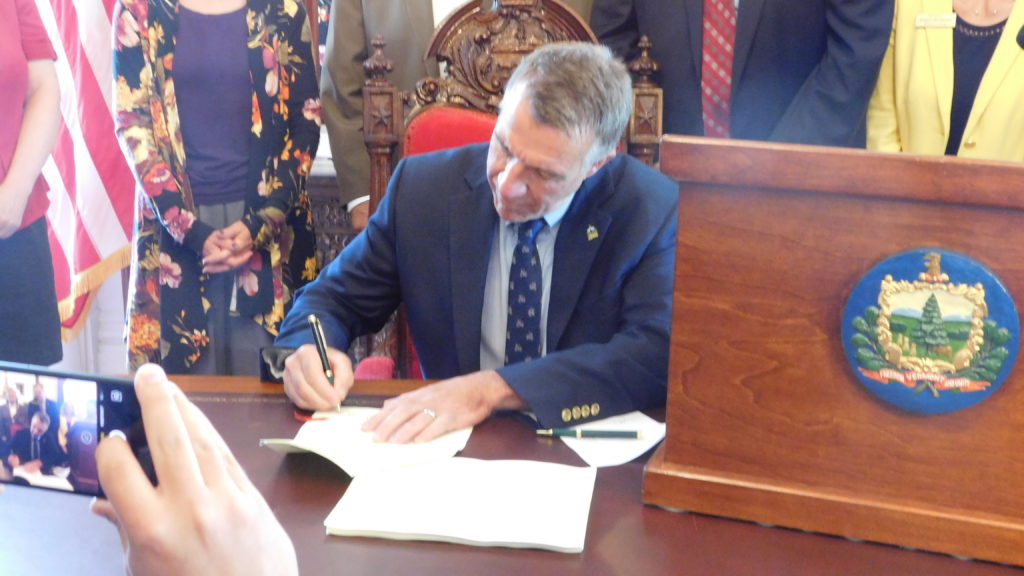Today, Gov. Phil Scott signed into law S. 8, an ethics and government reform bill. So, what does the new law do?
- Addresses the revolving door by prohibiting legislators and executive officers from working as a lobbyist for one year after leaving office.
- Bans certain pay to play practices by prohibiting holders of large sole source state contracts from making campaign contributions during the term of the contract to the officer who gives out or oversees the contract. On the flip side, it also prohibits campaign contributors from negotiating or entering into large sole source contracts with an officer to whose campaign they contributed for one year.
- Requires candidates and officeholders to file financial disclosures to give voters a better picture of their financial interests and any potential conflicts. Further, statewide candidates like the Governor and Lt. Governor are required to disclose their Form 1040 tax returns.
- Creates an independent State Ethics Commission that can accept, review, and track alleged violations of ethical governmental conduct at the statewide level. If the allegation has merit, the commission refers the complaint to the appropriate body, like the Attorney General’s Office, for further action. The commission can accept complaints from any source, and can issue guidance and advisory opinions to make it easier for government officials to do the right thing.
- Requires municipalities to adopt a conflict of interest policy, and encourages them to also adopt municipal ethical conduct policies.
Vermont now joins the 47 other states that have established ethics commissions to handle allegations of ethical violations. Most advocates for reform, however, felt that the legislation could have been much stronger.
VPIRG’s Paul Burns said, “The ethics commission is actually the weakest part of this law. The bill creates a commission for the first time in Vermont, which is a modest step in the right direction. But it will lack the authority, budget or independence that it needs to be truly effective.”
However, the bill includes other reforms that VPIRG strongly advocated for, including financial disclosures for candidates, legislators, and statewide officeholders. Vermont is now the first state to require tax transparency from statewide candidates. It’s been customary for candidates to release their tax returns, but because it was a voluntary practice, the timing and information disclosed varied widely. This law sets clear ground rules for everyone.
Further, the new law includes restrictions on the revolving door between officeholders and lobbyists, and “pay to play” practices, whereby an individual seeks to improve the odds of getting a lucrative no-bid state contract by making a campaign contribution to the person giving out the contact. Burns remarked,”This new law will put an end to that practice, at least for a portion of the contracts given out by the state. It’s a start.”
The law passed the Senate on a voice vote, and passed the House in its final version with a vote of 120 – 24. You can see how your representative voted on S. 8 here.

